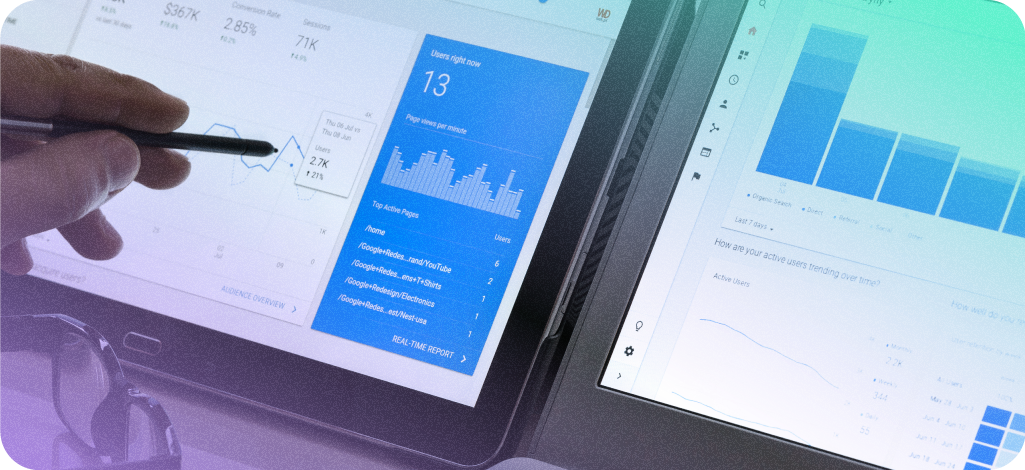
If you are reading this blog, you probably already know how crucial search engine optimisation (SEO) is to digital marketing. But did you know there are a few key SEO metrics that can hugely improve the effectiveness of your website’s search engine visibility?
By keeping track of the right metrics, you can monitor your website’s performance, identify areas that need improvement, and make informed decisions to optimise your website. In this post, we’ve discussed our top five most important SEO metrics, what they mean, and how to use them to your advantage! Here are our thoughts…
Organic search traffic
Organic search traffic is the number of visitors who come to your website through search engine results pages (SERPs) without clicking on paid ads. It is a critical SEO metric as it reflects the effectiveness of your SEO strategy.
By monitoring organic search traffic, you can understand how well your website is performing in terms of search engine visibility. To enhance organic search traffic, focus on optimising your website’s on-page elements such as keywords, meta descriptions, title tags, and content.
Keyword rankings
Keyword rankings are a crucial metric for evaluating your website’s search engine performance. They demonstrate how your website ranks for particular search terms, and help you identify keywords that are driving traffic to your website.
Track keyword rankings to assess how effective your SEO strategy is, and adjust your tactics accordingly. To improve keyword rankings, focus on creating high-quality content that targets specific keywords, building quality backlinks, and optimising your website’s technical SEO.
Backlinks
Simply put, backlinks are links from other websites to your website. They are a vital SEO metric as they help search engines determine the authority and relevance of your website.
By keeping track of backlinks, you can understand how many other websites are linking to your website and the quality of those links. To get the most out of backlinks, make sure you are putting out content that other websites will want to link to and building relationships with other websites in your sector.
Bounce rate
Your site’s bounce rate is the percentage of visitors who leave your website after viewing only one page. It’s considered an essential SEO metric because it reflects the quality of your website’s content and user experience.
A high bounce rate may indicate that visitors are not finding what they are looking for on your website. To improve your website’s bounce rate, make sure your site is engaging. Try to imagine yourself visiting your website for the first time – how long would you want to spend browsing it?
Conversion rate
Finally, conversion rate is the percentage of visitors who take a specific action on your website, such as making a purchase or filling out a contact form. It is a crucial metric for evaluating the effectiveness of your website’s user experience and marketing strategy.
By tracking conversion rates, you can assess how well your website is converting visitors into customers. To bump up your conversion rates, focus on your website’s user experience, including the layout, design, and calls-to-action.
In a nutshell
SEO metrics are essential for monitoring your website’s search engine visibility and effectiveness. By tracking your organic search traffic, keyword rankings, backlinks, bounce rate, and conversion rate, you can identify areas that need improvement and make informed decisions to greatly enhance your website’s quality, and in turn the number of people who will want to visit it.
With these metrics in mind, you can improve your website’s search engine performance, driving more traffic and conversions to your site, and taking your business to the next level!
This latest thinking article was written by:

Jack Lenton
Senior Content Executive